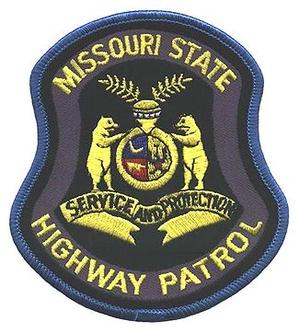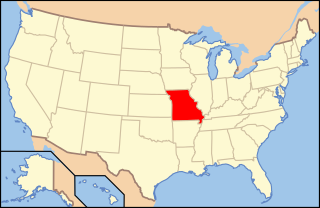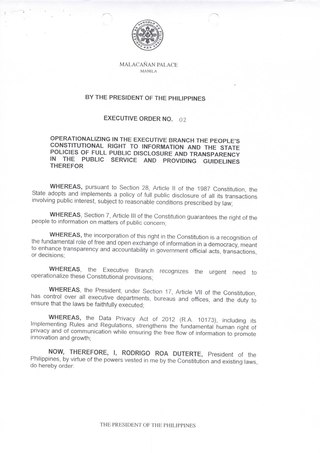Freedom of information in the United States relates to the public's ability to access government records, meetings, and other information. In the United States, freedom of information legislation exists at the federal level and at the local level.
Marshal is a term used in several official titles in various branches of society. As marshals became trusted members of the courts of Medieval Europe, the title grew in reputation. During the last few centuries, it has been used for elevated offices, such as in military rank and civilian law enforcement.

Proposition 59 was an amendment of the Constitution of California that introduced freedom of information or "sunshine" provisions. It was proposed by the California Legislature and overwhelmingly approved by the voters in an initiative held as part of the November 2004 elections.
The Ralph M. Brown Act is a California law that guarantees the public's right to attend and participate in meetings of local legislative bodies. Located at California Government Code 54950 et seq., it is an act of the California State Legislature, authored by Assemblymember Ralph M. Brown and passed in 1953.

The government of Alabama is organized under the provisions of the 1901 Constitution of Alabama, the lengthiest constitution of any political entity in the world. Like other states within the United States, Alabama's government is divided into executive, judicial, and legislative branches. Also like any other state, these three branches serve a specific purpose in terms of power.

A certified copy is a copy of a primary document that has on it an endorsement or certificate that it is a true copy of the primary document. It does not certify that the primary document is genuine, only that it is a true copy of the primary document.

The secretary of state is an official in the state governments of 47 of the 50 states of the United States, as well as Puerto Rico and other U.S. possessions. In Massachusetts, Pennsylvania, and Virginia, this official is called the secretary of the commonwealth. In states that have one, the secretary of state is the chief clerk of the state and is often the primary custodian of important state records. In the states of Alaska, Hawaii, and Utah, there is no secretary of state; in those states many duties that a secretary of state might normally execute fall within the domain of the lieutenant governor. Like the lieutenant governor, in most states, the secretary of state is in the line of succession to succeed the governor, in most cases immediately behind the lieutenant governor. In three states with no lieutenant governor as well as the U.S. territory of Puerto Rico, the secretary of state is first in the line of succession in the event of a gubernatorial vacancy.

The Missouri State Highway Patrol(MSHP) is the highway patrol agency for Missouri and has jurisdiction all across the state. It is a division of the Missouri Department of Public Safety. Colonel Eric T. Olson has been serving as the 24th superintendent since March 15, 2019.
The Office of the Missouri Attorney General was created in 1806 when Missouri was part of the Louisiana Territory. Missouri's first Constitution in 1820 provided for an appointed attorney general, but since the 1865 Constitution, the Attorney General has been elected. As of January 2023, there have been 44 attorneys general in Missouri.
The Commonwealth of Massachusetts is governed by a set of political tenets laid down in its state constitution. Legislative power is held by the bicameral General Court, which is composed of the Senate and House of Representatives. The governor exercises executive power with other independently elected officers: the Attorney General, Secretary of the Commonwealth, and Auditor. The state's judicial power rests in the Supreme Judicial Court, which manages its court system. Cities and towns act through local governmental bodies to the extent that they are authorized by the Commonwealth on local issues, including limited home-rule authority. Although most county governments were abolished during the 1990s and 2000s, a handful remain.

The California Public Records Act was a law passed by the California State Legislature and signed by governor Ronald Reagan in 1968 requiring inspection or disclosure of governmental records to the public upon request, unless exempted by law.
The open government laws in Florida are focused on three areas:
The copyright status of works produced by the governments of states, territories, and municipalities in the United States varies. Copyright law is federal in the United States. Federal law expressly denies U.S. copyright protection to two types of government works: works of the U.S. federal government itself, and all edicts of any government regardless of level or whether or not foreign. Other than addressing these "edicts of government", U.S. federal law does not address copyrights of U.S. state and local government.

Gun laws in Missouri regulate the sale, possession and use of firearms and ammunition in the state of Missouri in the United States.
Expungement in the United States is a process which varies across jurisdictions. Many states allow for criminal records to be sealed or expunged, although laws vary by state. Some states do not permit expungement, or allow expungement under very limited circumstances. In general, once sealed or expunged, all records of an arrest and of any subsequent court proceedings are removed from the public record, and the individual may legally deny or fail to acknowledge ever having been arrested for or charged with any crime which has been expunged.
Refusing to assist a police officer, peace officer or other law enforcement officer is an offence in various jurisdictions around the world. Some jurisdictions use the terminology '"refusing to aid a police officer" or "failure to aid a police officer".

Philippine President Rodrigo Duterte signed Executive Order No. 02, also known as the Freedom of Information (FOI) Program, on July 23, 2016, in Davao City. The executive order established the first freedom of information (FOI) Program in the Philippines covering all government offices under the Executive Branch. It requires all executive departments, agencies, bureaus, and offices to disclose public records, contracts, transactions, and any information requested by a member of the public, except for matters affecting national security and other information that falls under the inventory of exceptions issued by Executive Secretary Salvador Medialdea. The landmark order was signed two days before Duterte delivered his first State of the Nation Address and just three weeks after he assumed the presidency on June 30, 2016.

The Illinois Freedom of Information Act, 5 ILCS 140/1 et seq., is an Illinois statute that grants to all persons the right to copy and inspect public records in the state. The law applies to executive and legislative bodies of state government, units of local government, and other entities defined as "public bodies". All records related to governmental business are presumed to be open for inspection by the public, except for information specifically exempted from disclosure by law. The statute is modeled after the federal Freedom of Information Act and serves a similar purpose as freedom of information legislation in the other U.S. states.

The Illinois Public Access Counselor (PAC) is an attorney in the office of the Illinois Attorney General who is responsible for enforcing the state's Freedom of Information Act (FOIA) and Open Meetings Act (OMA). The PAC is the head of the Public Access Bureau, a group of more than one dozen attorneys who process complaints against public bodies and provide education to the public on Illinois' transparency laws.









